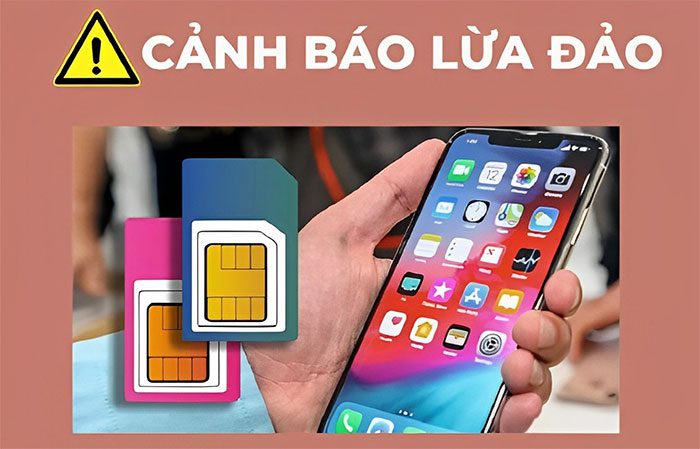Recently, a surge of scams through social media and phone calls has ensnared many individuals, causing significant financial losses for themselves and their families. Let’s uncover these deceitful tactics together.
21 Common Online Scams Today
- 1. Impersonating Law Enforcement Agencies
- 2. Impersonating Bank Employees
- 3. Sim Card Upgrade Scam
- 4. Prize Scam
- 5. Online Dating Scams
- 6. Hiring Sales Representatives
- 7. Impersonating Social Security Agencies
- 8. Charity Donation Scams
- 9. Lottery or Betting Number Scams
- 10. Hacking Social Media Accounts to Borrow Money
- 11. Impersonating Medical Staff
- 12. Fake Bank Service Activation Messages
- 13. Creating Fake Trading Platforms
- 14. Online Shopping Scams
- 15. Mistaken Money Transfers to Pressure Loans
- 16. Impersonating Financial Companies
- 17. Impersonating Traffic Violation Officers
- 18. Terroristic Phone Calls
- 19. Impersonating Company Executives
- 20. Impersonating Telecommunications Employees
- 21. Phone Line Locking Scams
- What to Do to Avoid Losing Money?
1. Impersonating Law Enforcement Agencies
In this tactic, scammers use high technology and disguise themselves under phone numbers identical to those of public law enforcement agencies, such as the police or the prosecutor’s office. They call victims, claiming they are being sued for debts or are involved in an investigation, and demand that victims disclose their assets, cash on hand, and bank account balances.
Subsequently, these perpetrators use threatening language, saying they will detain the victim for investigation and ask them to transfer money or provide OTP codes to facilitate the transfer of funds into their accounts under the guise of verification or investigation.
2. Impersonating Bank Employees
Scammers create fake websites resembling bank sites and train “staff” to call victims, step by step tricking them into logging in to these phishing sites to steal their information and access their bank accounts.
3. Sim Card Upgrade Scam
Impersonating network employees, the scammer calls or texts victims, providing instructions to upgrade their 3G sim to 4G, intending to gain control of the sim card and steal credit card information or OTP codes linked to that phone number.

4. Prize Scam
Scammers call victims claiming they have won a prize (such as a car or phone) and require a fee to claim the prize before absconding with the money.
5. Online Dating Scams
The rise of crimes using social media to trap women into scams for financial gain has been marked by increasingly sophisticated, organized, and professional methods.
Scammers often target women in difficult situations or those who are single, using social media to establish a connection. After gaining familiarity, they fabricate stories about sending money or gifts, later pretending to be customs officials demanding fees for the delivery of said gifts.
6. Hiring Sales Representatives
Scammers lure victims into making online purchases, paying commissions for the first few orders, but when larger orders are placed, the victims lose their money in the process.
7. Impersonating Social Security Agencies
Scammers create fake Facebook pages impersonating the Vietnam Social Security agency to deceive and extract money from the public. They claim that victims owe social insurance payments and demand fees for collection.
8. Charity Donation Scams
Scammers send links requesting individuals who need to receive charitable donations to enter their bank card information and passwords to receive the funds. Once victims input their information, the money in their accounts mysteriously disappears.
9. Lottery or Betting Number Scams
Tapping into people’s greed, many social media pages continuously send information under the guise of “Northern Lottery, Southern Lottery,” claiming to provide winning numbers and promising refunds if the numbers are incorrect.
10. Hacking Social Media Accounts to Borrow Money
Scammers hack into Facebook or Zalo accounts, messaging friends and family of the account owner asking to borrow money.
11. Impersonating Medical Staff
Scammers call, claiming that a family member is in critical condition in the hospital, demanding immediate money for emergency surgery.
12. Fake Bank Service Activation Messages
Scammers send links via text messages, asking victims to activate services. When victims access the link, they lose all money in their bank accounts.
13. Creating Fake Trading Platforms
Scammers send links for online payments to participate in fake trading platforms, requiring victims to send money as a deposit before absconding with their funds.
14. Online Shopping Scams
Scammers send links for online payments, requiring victims to send money upfront as a deposit before stealing the entire amount.
15. Mistaken Money Transfers to Pressure Loans
Scammers transfer a small amount of money into a victim’s account. After a while, they call demanding repayment as if it were a loan, along with interest.
16. Impersonating Financial Companies
Offering loans with low interest rates and simple procedures, scammers require victims to pay fees to process the loan before stealing their money.
17. Impersonating Traffic Violation Officers
Scammers inform victims of traffic violations and connections to criminal activities, demanding money for investigative purposes.
18. Terroristic Phone Calls
Scammers make threatening phone calls, demanding payments from victims as well as their friends and family.
19. Impersonating Company Executives
Scammers create Facebook or Zalo accounts, using the reputation of the victim’s superiors to message subordinates for money.
20. Impersonating Telecommunications Employees
Scammers pose as customer service representatives from telecommunications companies, demanding large payments from customers or using intimidation tactics to create panic.
21. Phone Line Locking Scams
Scammers call victims claiming their phone lines will be locked, a tactic that resurfaces especially during times when mobile subscribers need to update their personal information according to regulatory requirements.
Users receive a call notifying them that their phone number is about to be locked and are asked to follow certain steps. At this point, the scammers claim to be network employees, requesting personal identification numbers or citizen ID numbers to verify the registered information.
If users refuse to provide this information, scammers threaten to lock their mobile lines, coercing them to comply. If they follow the instructions, they risk losing control over their SIM cards, and scammers may proceed to take over other accounts, such as bank OTP codes and social media accounts.
What to Do to Avoid Losing Money?
To avoid falling prey to such scams and losing money, the public should be vigilant: never transfer money to anyone unless you know them well; government agencies do not conduct business over the phone; absolutely do not provide OTP codes to anyone; verify with authorities if someone messages you for loans; any offers of “easy, high-paying jobs” online are scams.
Additionally, individuals can contact the nearest police station to report and seek assistance in verifying information, requesting legal action against violations as per the law.


















































